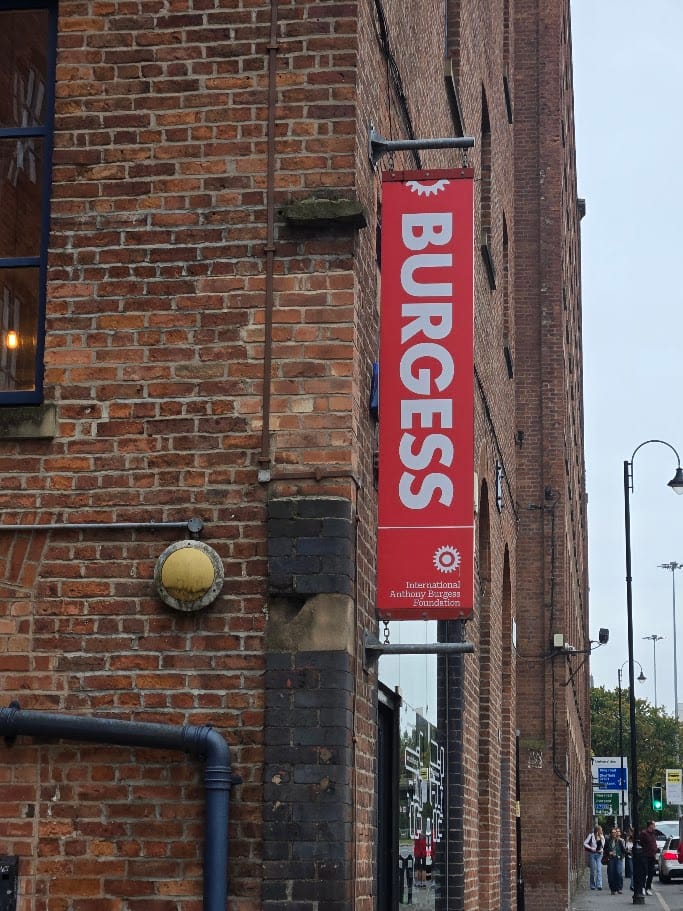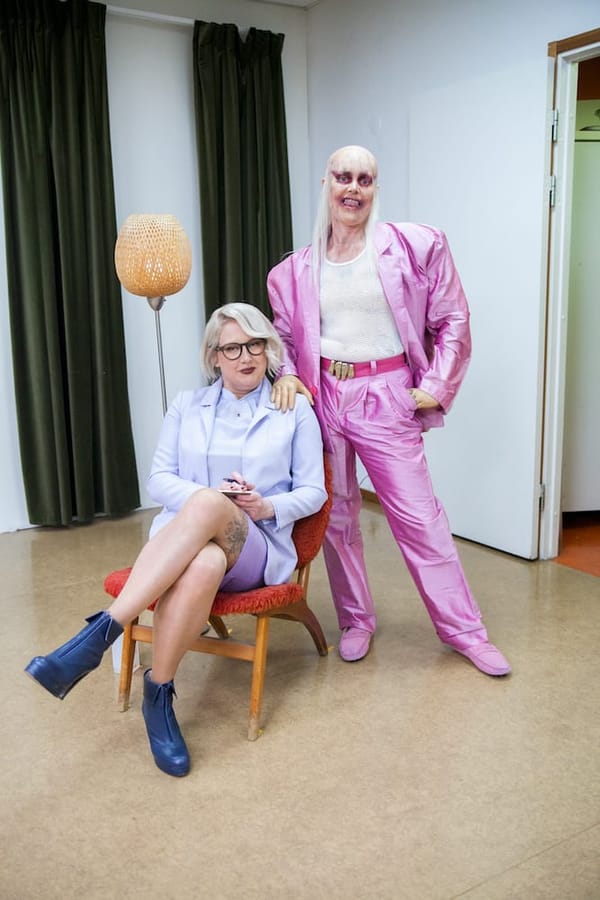What's worth it?

This is the first half of a two parter, the other being about what happens when your academic talk is drastically altered in real time when you're not watching your phone.
I was invited to put something together for the Games Workshop Research Day, a now annual event at Manchester Metropolitan University in (duh) Manchester, UK. It's small and cozy, more fun than prestigious, tucked deep into the bowels of urban Manchester.
It was, indeed, fun. And expensive and maybe crazy to go to. Plane tickets, an unfavorable exchange rate, and general inflation made my going feel a little dumb. But also it wasn't.
I stayed with my friends (and academic power couple) Sophie Bishop and Daniel Joseph for a day, then split a suite in Manchester proper with my frequent collaborator and intellectual soulmate Sam Tobin. Like me, Sam was invited to contribute, came over from the States, and probably didn't have the spare money to make the trip but figured it out anyway.
The night after the conference, I asked Sam what the hell we were thinking. We'd spent circa a grand on tickets apiece, paid for lodging, kept paying for food and cabs and all that. Sam's reply was that this was the best part of the whole thing.
And he was right. We had a legitimately generative (ugh) series of discussions and social interactions with incredibly smart, interesting people over a 12 hour period. We got to go to a cool town and eat good food (British food is good). We'd finagled it so that neither of us missed too much of our teaching responsibilities.
But really, as Sam went on to point out, most academics don't get to do this thing at all or at least very often. There's a weird thing I run into with family and non-academic friends where they go "oh gosh, so cool, you're an academic, that's sort of exotic and neat." And it's not. It's just a job. But even within that job the experience varies wildly. Most academics are at community colleges and regional institutions. Their students just want to learn a few things and get a job. They maybe didn't do great in high school but deserve a shot. Academic jobs at those schools are about juggling budgets, figuring out how to keep admin happy while said admin cuts budgets or tries to leverage core competencies and synergize stakeholders or whatever the hell their MBA programs told them to bleat on about.
Even my adjunct job at UNC, public ivy, is closer to the dream of brandy and big brains than most tenure track jobs. I still talk a lot about philosophy with colleagues and debate media theory. Farther removed still are the Harvards and Princetons and Oxfords.
When my grandmother found out I was doing my PhD at UNC, she smiled and said "ohhhhh, you're going to be famous!" Now, she was 102 at the time and not quite in her right mind, even if she was remarkably sharp for her age. But I think her underlying assumption, that academic work is cool and exotic and valued, is pretty much the underlying assumption everywhere. And that's part how you get the unseemly media fixation on what's happening to the scions of the ruling class at the Ivies as representative of what happens at all universities. It's just not true.

So yes, doing something financially stupid was spiritually smart. Because those of us not in the tenure track jobs or at the prestigious R1s sort of buy into it, too. We maybe have to before one more weekend of grading, one more budget, one more faculty meeting, one more mass email from the Chancellor about how AI is the key to navigating the challenges of the 21st century but under no circumstances protest the actual challenges of the 21st century, not on my campus thank you. So getting away from that, talking, doing what the work should be for everyone, is a sweet balm.
For that brief moment--three days in Manchester, two days of excruciating travel, a small but real hole in the budget--it's still magic. Sam wasn't sure can put a price on magic and I'm not, either.
False consciousness never felt so good or real. Sincerely.




